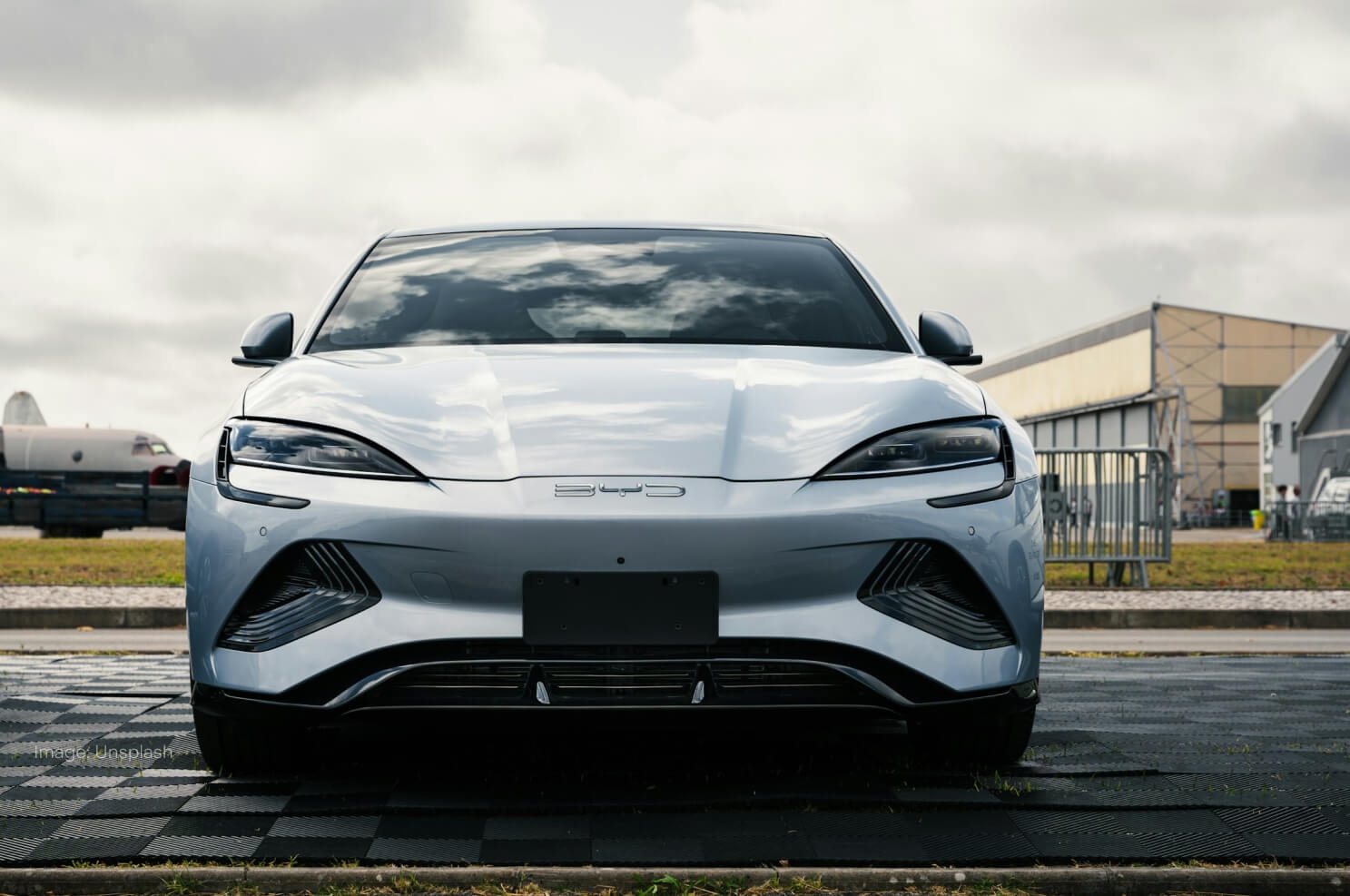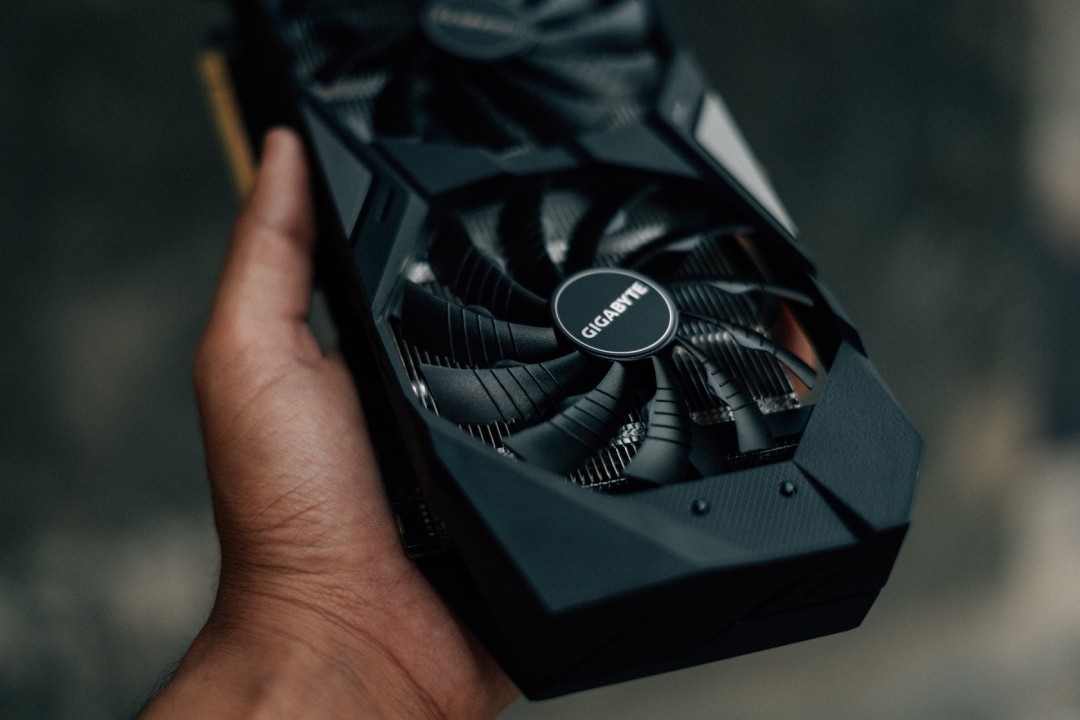
How to buy BYD shares in Australia [2025]
BYD, the Chinese multinational manufacturing company is taking over the electric vehicle industry with record sales in 2023, and strong stock price performance continuing in 2024. Find out how you can gain exposure to BYD Company right here in Australia.
This article focuses on how to buy specific securities, however, it is not a recommendation to invest in them and should not be taken as financial advice. Do your own research and make your own decisions, or even consider getting advice from a licensed financial adviser before investing.
Here's what you'll learn in this article:
- How to buy BYD shares
- BYD Company Limited. overview
- BYD share price performance
- BYDDY vs BYDDF
- BYD stock P/E ratio
- What are similar stocks to BYD?
- Which ETFs have exposure to BYD?
- BYD FAQs
The main way to invest in BYD shares in Australia is by using an online investment platform with access to the OTC market. Follow our step by step guide below:
1. Find a stock investing platform
To buy shares in BYD, you'll need to sign up to an investing platform with access to OTC stocks. There are several share investing platforms available, of which Stake is one.
2. Fund your account
Open an account by completing an application with your personal and financial details. Fund your account with a bank transfer, PayTo, debit card or even Apple/Google Pay.
3. Search for BYD or BYDDY
Find the company by searching for the ticker symbol: $BYDDY. It is advised to conduct your own research to ensure you are purchasing the right investment product for your individual circumstances.
Not to be mistaken with a different company on Wall St ($BYD - Boyd Gaming Corporation).
4. Set a market or limit order and buy the shares
OTC instruments only support limit orders on the Stake app. Use a limit order to delay your purchase of BYDDY shares until it reaches your desired stock price. Look into dollar cost averaging to spread out your risk, which smooths out buying at consistent intervals.
5. Monitor your investment
Once you own the shares, you should monitor their performance. Check your portfolio regularly to ensure your investment is aligning with your financial goals.

BYD Company Limited. overview
BYD Company Ltd., an acronym for "Build Your Dreams," is a renowned multinational firm specialising in various sectors, including automobile manufacturing and renewable energy.
Founded in 1995 by Wang Chuanfu, BYD started as a rechargeable-battery factory competing in the global market. Under Wang's visionary leadership, it expanded into the automotive sector, becoming a significant player in the automobile industry, particularly in electric vehicles (EVs). This foray into EVs showcases its commitment to sustainable transportation.
In 2023, BYD achieved a remarkable milestone by selling 3.02 million vehicles, reflecting a substantial year-on-year increase and surpassing Tesla production for the second year in a row. This surge underscored BYD's growing influence in the EV market.
Beyond vehicles, BYD has a strong presence in the renewable energy sector. The company produces energy storage batteries, contributing to the global shift towards green energy solutions. Its battery technology is not limited to automobiles but also caters to stationary energy storage needs.
BYD has also ventured into the semiconductor industry, developing components essential for electric vehicles and smart technologies. This diversification demonstrates BYD's holistic approach to technology integration.
As of 2025, BYD stands as a US$103b firm. Their journey has taken them from a small battery manufacturer to a global EV leader, exemplifying innovation and a commitment to sustainable development.
💡 Deep dive into the Under the Spotlight on BYD Company
In 2023, the BYD share price experienced notable fluctuations, reflective of the dynamic landscape of the electric vehicle (EV) and renewable energy markets. Despite the broader challenges in the global economy, BYD's stock demonstrated resilience, driven by its strong performance in the EV sector. The company's strategic expansion and increasing sales volume in the electric vehicle market contributed to this positive trend.
In particular, BYD's commitment to innovation and expansion into international markets bolstered investor confidence, contributing to a surge in its stock value over the year.
Moving into 2024, BYD's stock has faced a mix of optimism and caution from investors. While some forecasts anticipate continued growth for BYD, particularly due to its expanding global footprint and diversification into various segments of the EV and renewable energy markets, concerns about competition and market volatility persist.
The stock showed signs of strength in 2024, soaring near its all-time high around US$83 at it's peak for the year. BYD is now priced at US$66.81 (as of 15 January 2025) up +0.32% YTD.
The company is not immune to market pressures, including those from the evolving landscape of the EV industry in China and the broader global economic conditions.

BYDDY vs BYDDF
BYDDY and BYDDF represent two versions of BYD stock traded on the U.S. OTC markets. BYDDY is the American Depository Receipt (ADR) of BYD, essentially a bundle of two BYDDF shares. BYDDF represents BYD's H-shares.
BYDDF trades at the HKD/USD conversion rate based on the HK shares (1211:HK). BYDDY shares typically trade at about twice the price of BYDDF shares.
The $BYDDY OTC stock is available on Stake but the BYDDF OTC is not.
BYD stock P/E ratio
As of 15 January 2024, the price-to-earnings ratio for BYDDY is reported at 20.58 on YCharts.
What are similar stocks to BYD?
Several stocks listed on Stake Wall St share similarities with BYD in their focus on electric vehicles (EVs).
- Tesla, Inc. ($TSLA): A leading name in the EV industry, Tesla is renowned for its electric cars, battery energy storage, and solar products. Its comprehensive approach to sustainable transport and energy solutions mirrors BYD's diversified business model.
- General Motors Co. ($GM): As a legacy auto giant transitioning into EV manufacturing, GM's efforts to innovate in the electric vehicle space align it with similar objectives to BYD.
- Ford Motor Co. ($F): Ford has made significant strides in electrifying its vehicle lineup, including the development of electric trucks and SUVs.
- Rivian Automotive, Inc. ($RIVN): Known for its innovative electric trucks and SUVs, Rivian is a key player in the EV market. The company focuses on developing vehicles that combine sustainability with adventure.
- Polestar Automotive Holding ($PSNY): Polestar, a subsidiary of Volvo, specialises in electric performance cars. The company's focus on high-quality, design-driven EVs places it in a similar market segment to BYD's premium electric vehicle offerings.
💡Related: Dive into our list of electric vehicle stocks to watch→

🆚 Which stock has been performing better: BYDDY vs TSLA→
Which ETFs have exposure to BYD?
Here is a list of exchange-traded funds that have BYD Company Limited as one of their holdings:
- AAM Transformers ETF ($TRFM): TRFM ETF focuses on companies engaged in the transformation of their industries through innovative use of technology. BYD's inclusion reflects its role in revolutionising the EV industry.
- ARK Autonomous Technology & Robotics ETF ($ARKQ): ARKQ invests in companies that are leaders in autonomous technology and robotics, including those in the electric vehicle space, making BYD a fitting constituent.
- iShares MSCI Emerging Markets ETF ($EEM): This ETF offers exposure to emerging market stocks, including large companies like Samsung, Alibaba and BYD. aligning with investors looking to diversify into rapidly growing markets.
Join 750K investors
Get a full U.S. share when you fund Stake Wall St or A$10 trading credit when you fund Stake AUS. Fund both, get both. T&Cs apply.
BYD FAQs
Yes, Warren Buffet has holdings in BYD Co. Ltd, showing great interest in the Chinese automobile maker. BYDDF is 0.6% of Berkshire Hathaway’s portfolio (as of 30 September 2024), at a value of US$$1,806,490,733.
On 16 July 2024, Berkshire trimmed their stake in the company from 5.06% down to 4.9%, according to a Hong Kong stock exchange filing.
To be able to buy shares in BYD in Australia you will need to use an investing platform with access to either the Hong Kong Stock Exchange or over-the-counter markets.
Stake provides its users access to OTC stocks and the stock ticker $BYDDY is available to trade for investors who want to gain exposure to the company.
Follow these steps to buy BYD stock in Australia:
- Find the right investing platform for you that offers BYDDY shares. Try Stake, you can sign up in minutes.
- Fund your brokerage account.
- Search for BYDDY
- Place an order to buy BYDDY.
- Monitor your portfolio to stay on top of the asset's performance.
Disclaimer
The information contained above does not constitute financial product advice nor a recommendation to invest in any of the securities listed. Past performance is not a reliable indicator of future performance. When you invest, your capital is at risk. You should consider your own investment objectives, financial situation and particular needs. The value of your investments can go down as well as up and you may receive back less than your original investment. As always, do your own research and consider seeking appropriate financial advice before investing.
Any advice provided by Stake is of general nature only and does not take into account your specific circumstances. Trading and volume data from the Stake investing platform is for reference purposes only, the investment choices of others may not be appropriate for your needs and is not a reliable indicator of performance.
$3 brokerage fee only applies to trades up to $30k in value (USD for Wall St trades and AUD for ASX trades). Please refer to hellostake.com/pricing for other fees that are applicable.

Megan is a markets analyst at Stake, with 7 years of experience in the world of investing and a Master’s degree in Business and Economics from The University of Sydney Business School. Megan has extensive knowledge of the UK markets, working as an analyst at ARCH Emerging Markets - a UK investment advisory platform focused on private equity. Previously she also worked as an analyst at Australian robo advisor Stockspot, where she researched ASX listed equities and helped construct the company's portfolios.


